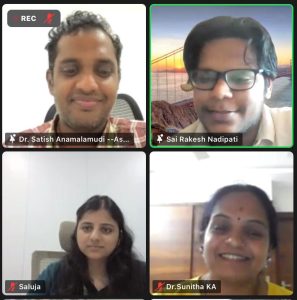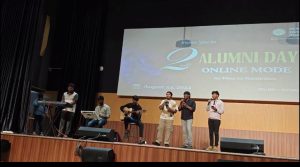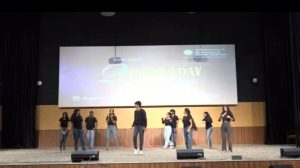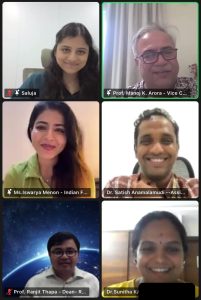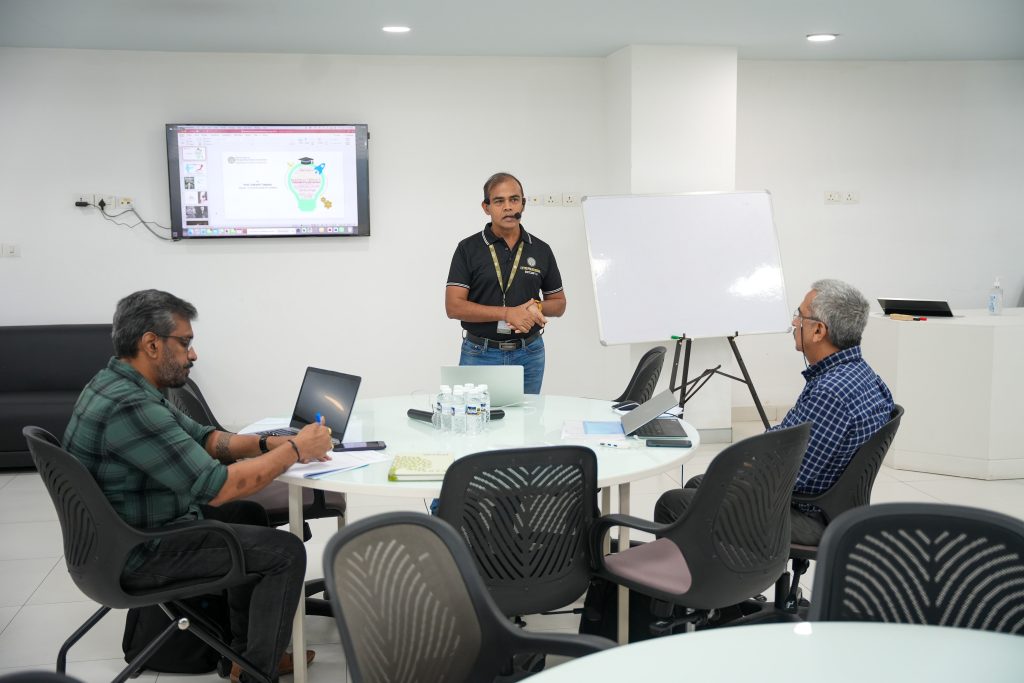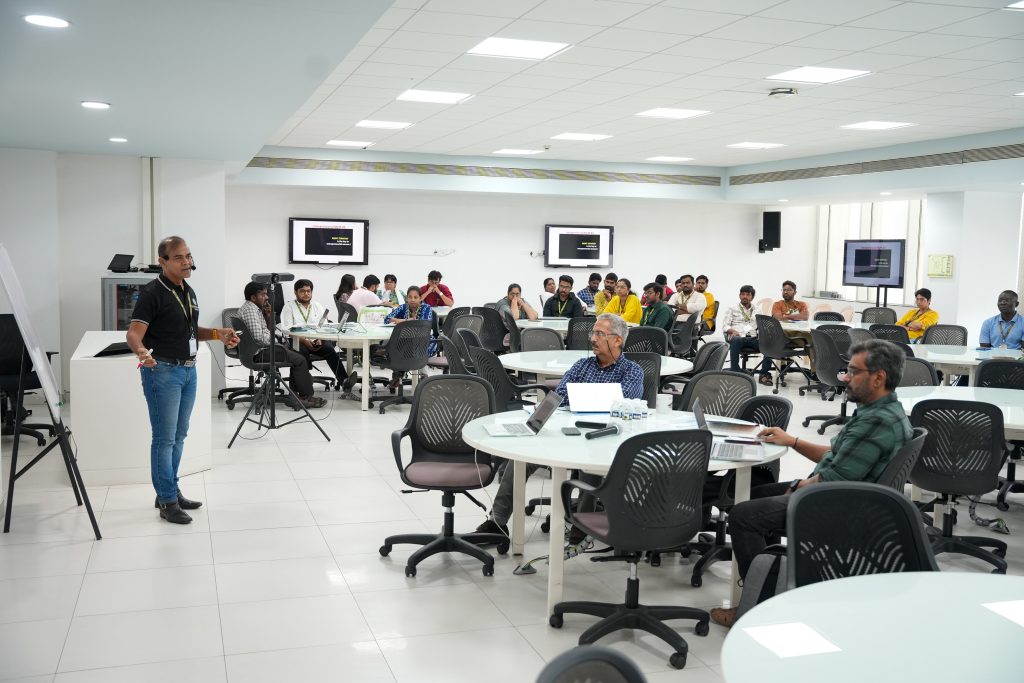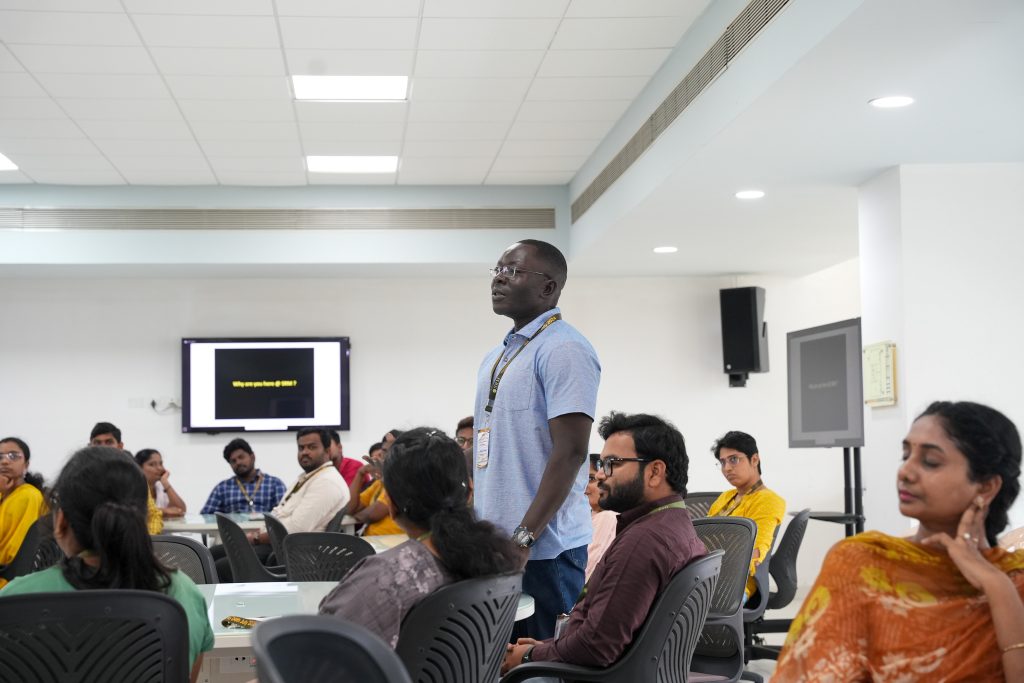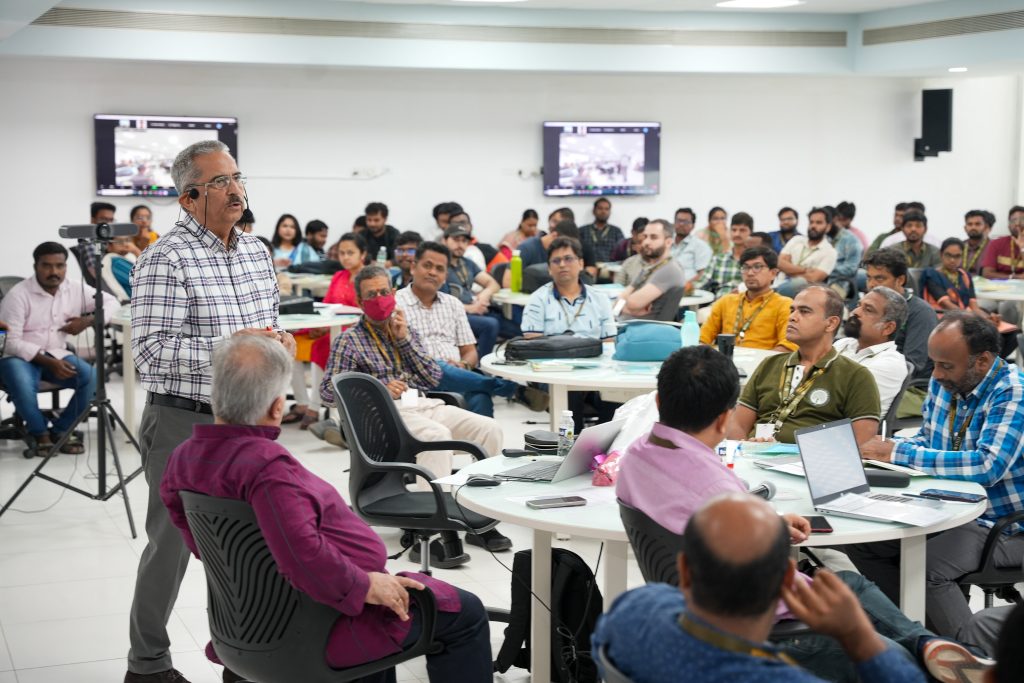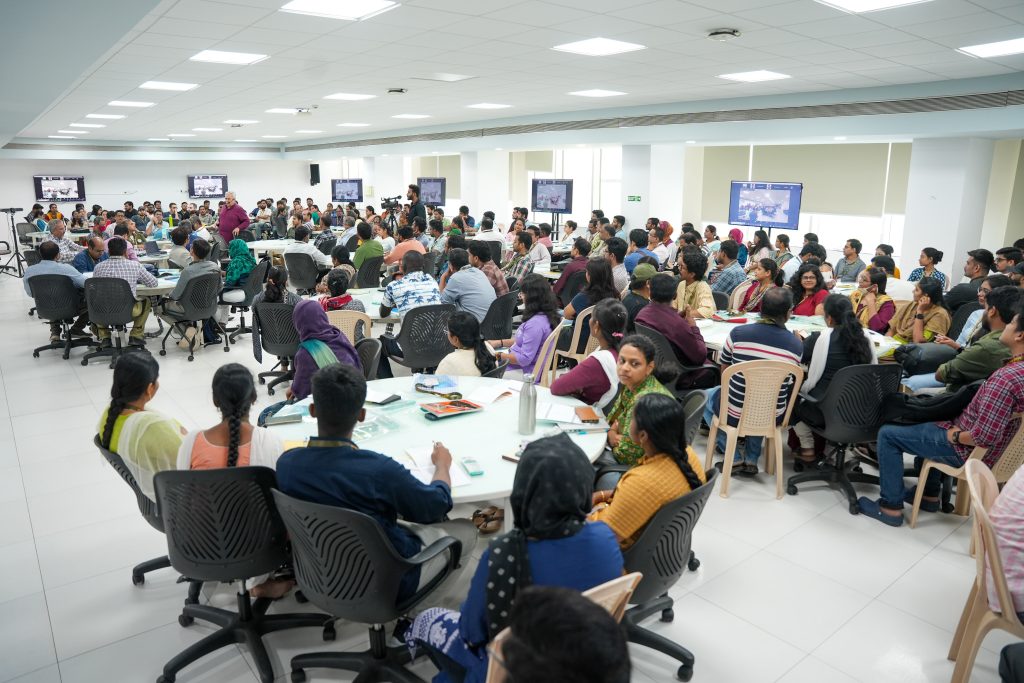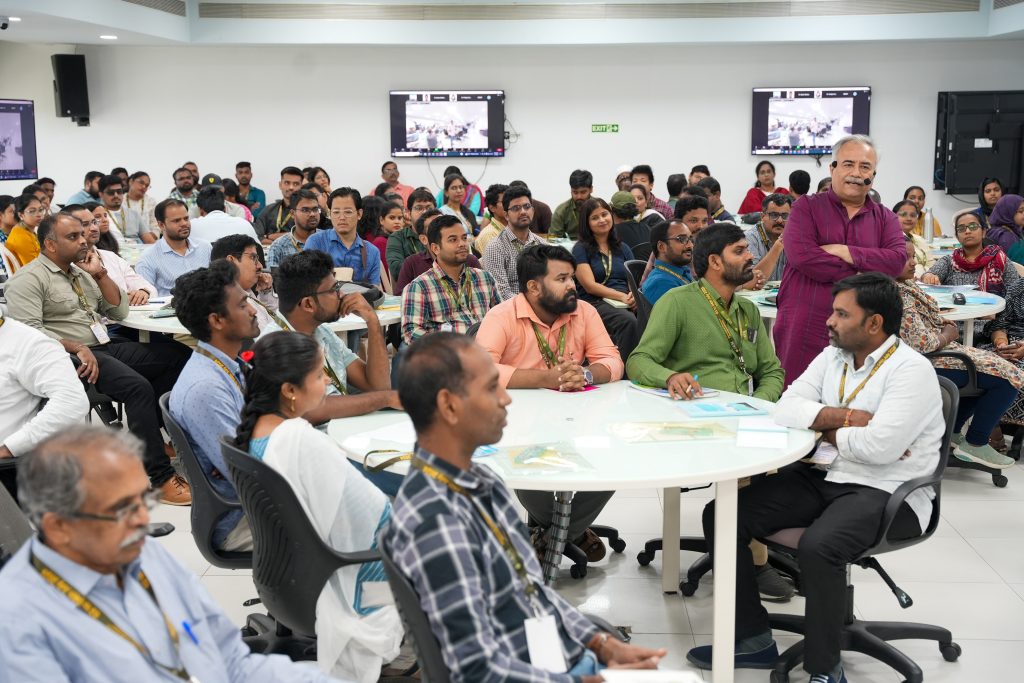Honouring the Founder’s Legacy: Celebrating the Vision and Impact of an Inspiring Leader
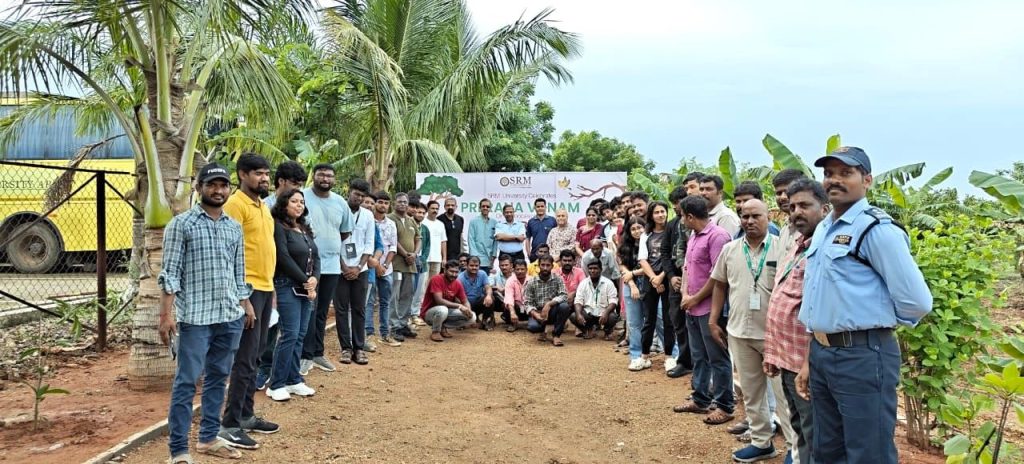 On August 24, 2024, SRM University-AP commemorated a significant event marking the 85th Birthday of the esteemed Founder Chancellor of the SRM Group, Dr T R Paarivendhar, celebrating his visionary leadership and contributions. In honour of this day, and reinforcing the ethos of sustainability and environmental consciousness, the university launched “Prerna Vanam,” a plantation-drive initiative.
On August 24, 2024, SRM University-AP commemorated a significant event marking the 85th Birthday of the esteemed Founder Chancellor of the SRM Group, Dr T R Paarivendhar, celebrating his visionary leadership and contributions. In honour of this day, and reinforcing the ethos of sustainability and environmental consciousness, the university launched “Prerna Vanam,” a plantation-drive initiative.
This annual initiative served as a testament to the varsity’s ongoing efforts to contribute positively to the environment, aligning with global sustainability goals and the founder’s visionary ideals. As we face the challenges of global warming, the varsity comes together to combat climate change, support biodiversity, and ensure a sustainable future. The event held at the university campus was attended by students, staff, and faculty members of the university and helped set a practical example of how institutions can play a pivotal role in making the world a better place for future generations by investing in ecological sustainability.
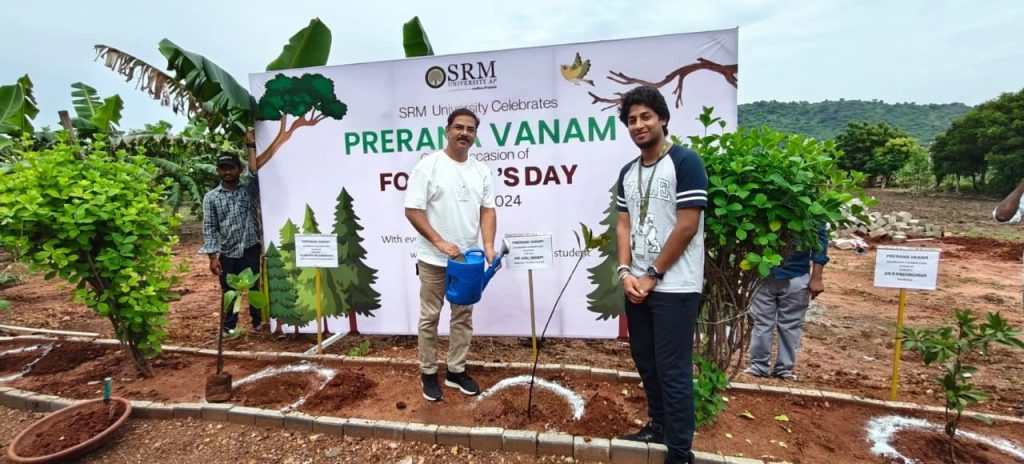
- Published in News, University Event
Nurturing Vision, Inspiring Futures: 2nd Alumni Meet Celebrated
SRM University-AP conducted its 2nd Virtual Alumni Meet on August 24, 2024, coinciding with the birthday celebration of the Founder Chancellor of SRM Group, Dr T R Paarivendhar.
The meet attracted a diverse group of alumni, including South Indian film actress and former SRM student Ms Iswarya Menon, who served as the chief guest. Vice Chancellor Prof. Manoj K Arora addressed the alumni with a compelling message about their role in shaping the future. He emphasised the importance of alumni involvement, stating, “Your contributions are crucial as we work towards becoming a developed nation by 2047.” Prof. Arora highlighted how the alumni’s active participation in building an alumni corpus and supporting the university will play a key role in driving the institution’s progress and fostering future generations of leaders.
He further noted that the alumni’s continued engagement not only benefits the university but also strengthens the support network available to current and future students, ensuring the sustained success of the varsity’s mission of excellence.
Chief Guest Ms Iswarya Menon, a former SRM student, expressed her heartfelt gratitude to the institution. “The guidance and support I received from SRM have been pivotal in my career development. I am truly grateful for the foundation laid here, which has significantly shaped my professional journey.”
The group of former students communicated their profound appreciation for the varsity, emphasising the significant impact it has had on their lives. They reaffirmed their commitment to actively support the university’s various initiatives and to aid in its continued growth and success.
Dr Satish Anamalamudi, Assistant Director-Alumni Relations, acknowledged the importance of alumni engagement. He remarked, “Your continued connection with SRM University-AP is essential for our growth and success.”
The event was further enlivened by performances from both alumni and current students, adding a dynamic and festive atmosphere that showcased the vibrant spirit and creativity at SRM University-AP. Registrar Dr R Premkumar, along with the deans and faculty, attended the gathering, reinforcing the strong and enduring bond between SRM University-AP and its alumni.
- Published in Alumni, Alumni Relations, News, University Event
Upskilling “You” to Enhance Career Opportunities
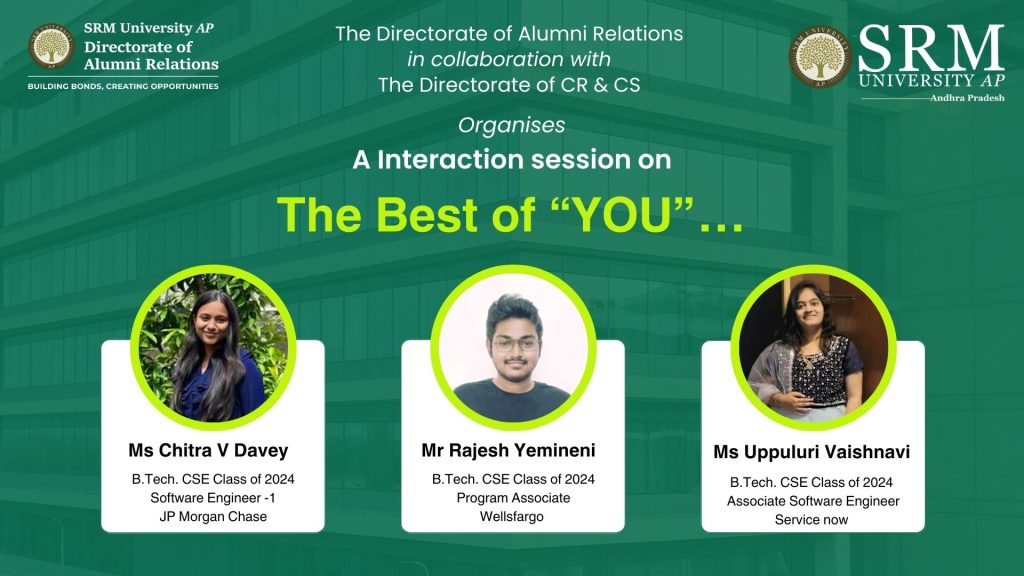 Creating a roadmap for learning and constantly upskilling oneself is essential to achieving career growth and stability. The interactive session conducted on July 06, 2024, by the Directorate of Alumni Relations and the Directorate of CR & CS emphasised this very requirement. The alumni of the institute, Mr Rajesh Yemineni, B.Tech. CSE Class of 2024, currently working as a Program Associate at Wells Fargo, and Ms Uppuluri Vaishnavi, B.Tech. CSE Class of 2024, Associate Software Engineer at Service Now, delivered a wonderful session with participants leaving with pro tips to crack interviews and designing their own roadmap to success by choosing their specialisations and courses.
Creating a roadmap for learning and constantly upskilling oneself is essential to achieving career growth and stability. The interactive session conducted on July 06, 2024, by the Directorate of Alumni Relations and the Directorate of CR & CS emphasised this very requirement. The alumni of the institute, Mr Rajesh Yemineni, B.Tech. CSE Class of 2024, currently working as a Program Associate at Wells Fargo, and Ms Uppuluri Vaishnavi, B.Tech. CSE Class of 2024, Associate Software Engineer at Service Now, delivered a wonderful session with participants leaving with pro tips to crack interviews and designing their own roadmap to success by choosing their specialisations and courses.
The talk helped students create a comprehensive roadmap to ensure a structured approach to learning. Prioritisation of topics with a focus on DSA, DBMS, OS, and CN was discussed to build a strong foundation in core CSE subjects. The alumni also encouraged students to practice coding problems and projects, applying theoretical knowledge to real-world scenarios to gain practical experience and build a portfolio.
The alumni also shared tips and tricks for overcoming interviews and flying with passing colours. From breaking down complex problems to practising coding problems and projects, these insightful tips ensured that our students would be ready to take on their desired career paths. Staying updated with industry trends and advancements to remain competitive in the job market was also prioritised.
The session concluded with the alumni encouraging students to step out of their comfort zones and challenge themselves, pushing beyond current limits to achieve growth and success and developing a growth mindset.
- Published in Alumni Relations, Alumni Relations News, CR&CS NEWS, Departmental News, News
Research to Revenue: 3-day Workshop Concludes
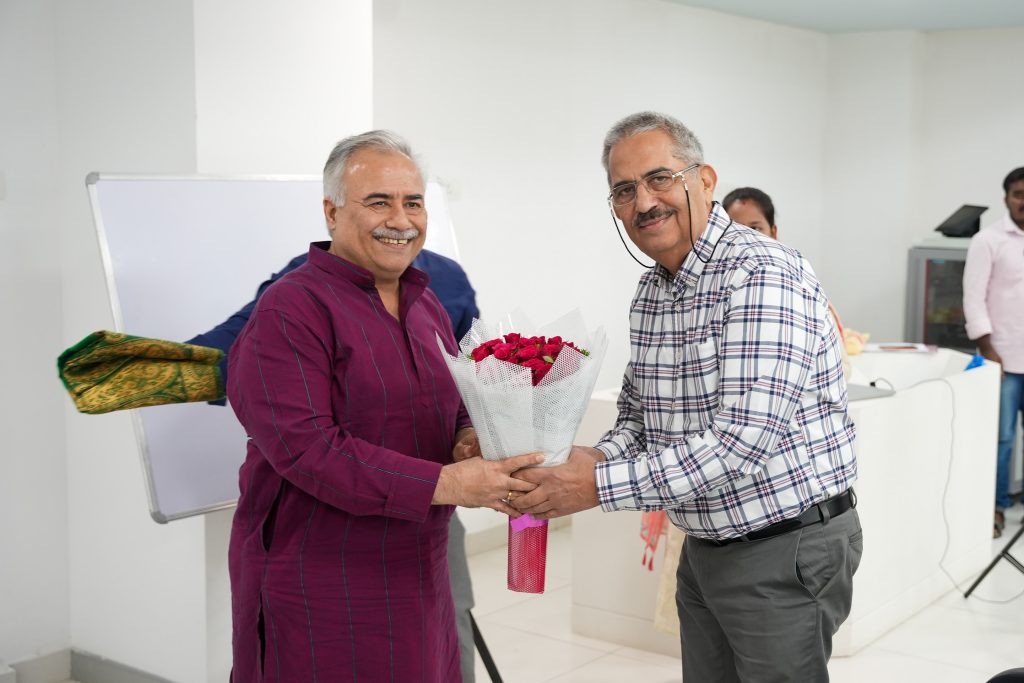 The Office of the Dean-Research and IPR Cell at SRM University-AP hosted a highly impactful 3-day Workshop on “Research Commercialisation.” The workshop was graced by industry expert Mr Rakesh Sharma, a leading figure in business restructuring and global marketing. Mr Sharma with his notable experience of 38 years at Philips, imparted valuable insights on innovation, venture development, and commercialisation.
The Office of the Dean-Research and IPR Cell at SRM University-AP hosted a highly impactful 3-day Workshop on “Research Commercialisation.” The workshop was graced by industry expert Mr Rakesh Sharma, a leading figure in business restructuring and global marketing. Mr Sharma with his notable experience of 38 years at Philips, imparted valuable insights on innovation, venture development, and commercialisation.
The workshop was attended by faculty and research scholars, all keen on understanding the intricacies of research commercialisation. The inaugural ceremony of the workshop was highlighted by the felicitation of Mr Sharma by the Vice Chancellor, Prof. Manoj K Arora, along with Prof. Ranjit Thapa, Dean—Research; Deans of the three schools; Prof. G S Vinodkumar, Coordinator—IPR Cell & Convenor of this workshop; and other senior faculty members.
In his address, Prof. Manoj K Arora underscored the critical role of research, he urged the attendees to “think differently and change your mindset to unlock the boundless potential of your research and innovation.” He engaged with faculty and research scholars, seeking their perspectives. Prof. Ranjith Thapa, the Dean of Research, presented an overview of the varsity’s research capabilities, spotlighting its achievements in Q1 publications and patents across different departments.
Day 1– The workshop kicked off with Mr Sharma encouraging participants to voice their queries and concerns about commercialisation. Key discussion points covered included linking university research with practical applications, the transformation of patents and research into industry-ready products, understanding market needs, fundraising for research projects, and leveraging humanities and liberal arts in patent implementation. Mr Sharma engaged with each of the queries and closely explained to the students with simple and easy-to-understand examples, thereby making the session worthwhile and interesting.
Day 2—Scholars had the opportunity to present their published and granted patents. They received constructive feedback from faculty and Mr Sharma and understood how these patents could be further developed for commercialisation, thereby leading to fruitful discussions on improving and materialising these ideas.
Day 3– A significant outcome of the workshop was the proposal to establish a new centre for research commercialisation designed to offer students an in-house pathway to commercialise their patents. This initiative received widespread acclaim from all participants and sparked engaging discussions about transforming research into viable business ventures, facilitated by the session by the Director of Entrepreneurship and Innovation, Mr Sidharth Shankar Tripathy.
The workshop offered a crucial platform for students, offering both inspiration and guidance in their pursuit of entrepreneurship. The event was specifically designed for all PhD Scholars who are currently working on their research papers and looking for ways to commercialise their innovative ideas, projects, or inventions.
Through a series of expert-led sessions, interactive discussions, and networking opportunities, students were encouraged to think critically about their project’s potential impact, market readiness, and the pathways to achieving sustainable business growth.
- Published in News, Research, Research News, Research Workshop, Workshop
Joining Hands to Save Lives: Celebrating World Blood Donor’s Day
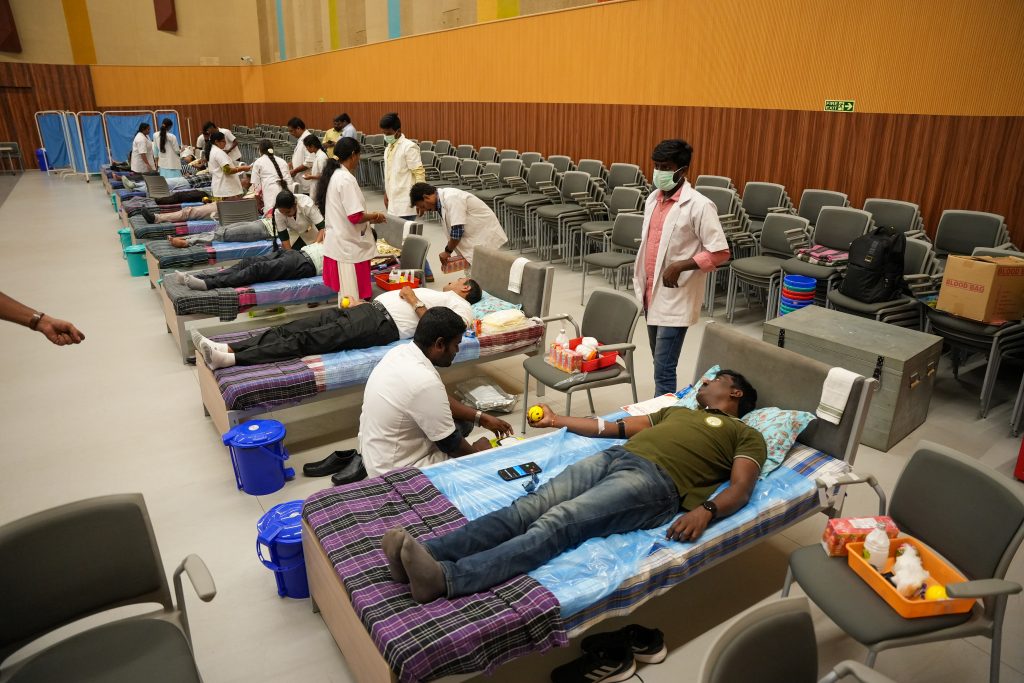
In a commendable display of community spirit and dedication to saving lives, SRM University-AP hosted a Blood Donation Camp to honour World Blood Donor’s Day. Organised in collaboration with Guntur Medical College, the event marked a significant success and underscored the university’s steadfast commitment to societal welfare.
The camp’s inauguration was graced by Chief Guest Mr Venugopal Reddy, Collector of the Guntur Region. He was accompanied by Dr V Kiran Kumar, Chief Surgeon, and his team from the Government Blood Centre at Government General Hospital-Guntur, Dr R Premkumar, Registrar of SRM University-AP, and Ms Revathi Balakrishnan, Associate Director of Student Affairs, and other key dignitaries witnessed the inaugural ceremony.
In his opening address, Mr Venugopal Reddy stressed the crucial significance of blood donation, emphasising that “Blood is a vital component that cannot be artificially manufactured in laboratories.”
Registrar Dr Premkumar emphasised the importance of donating blood and highlighted that “donation continues to be the sole way to guarantee an ongoing supply of this life-saving elixir.” He stressed the significance of these camps in cultivating a culture of altruism and accountability within the university community.
The university enthusiastically participates in coordinating frequent blood donation drives to support the community and meet the demand for blood donations. The event also served as a platform to dispel myths surrounding blood donation, thereby encouraging broader participation. The students, faculty, and staff of SRM University-AP showed immense enthusiasm in donating blood, significantly contributing to the camp’s outstanding success.
Adding to the day’s significance, Dr Karthik Rajendran, Associate Dean-QAR, was honoured with the Lifesaver Award by the Indian Red Cross Society. This prestigious accolade was bestowed in recognition of his substantial contributions to blood donation and his unwavering commitment to saving lives.
The varsity’s Blood Donation Camp exemplifies the profound impact of collective effort in addressing critical healthcare needs. It highlights the university’s unwavering commitment to making a positive societal impact and reinforces the importance of regular blood donation and community service.
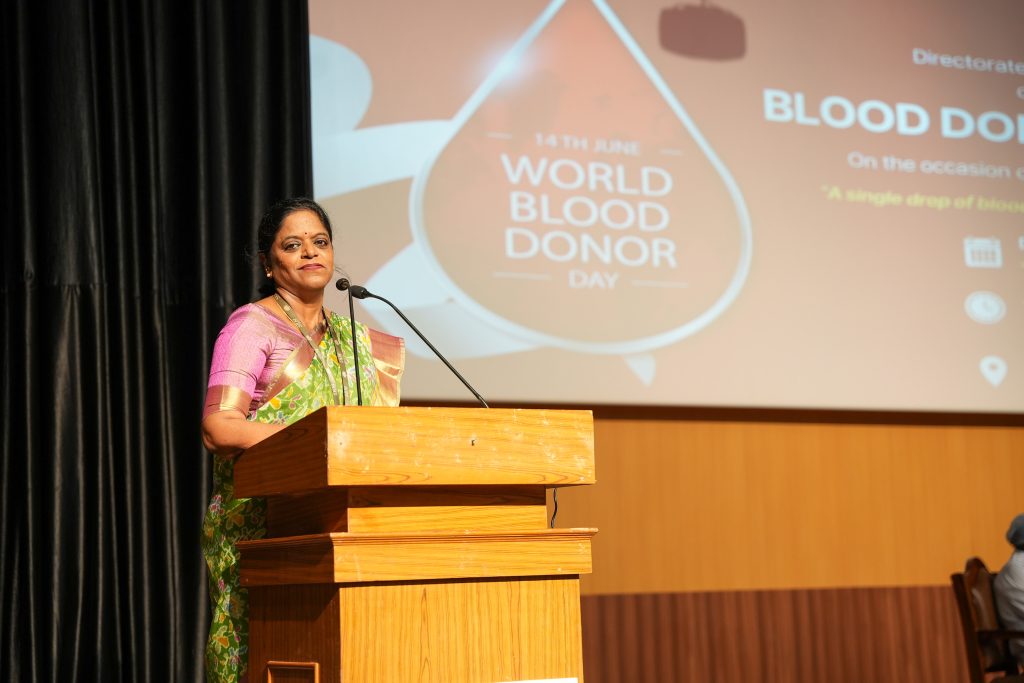
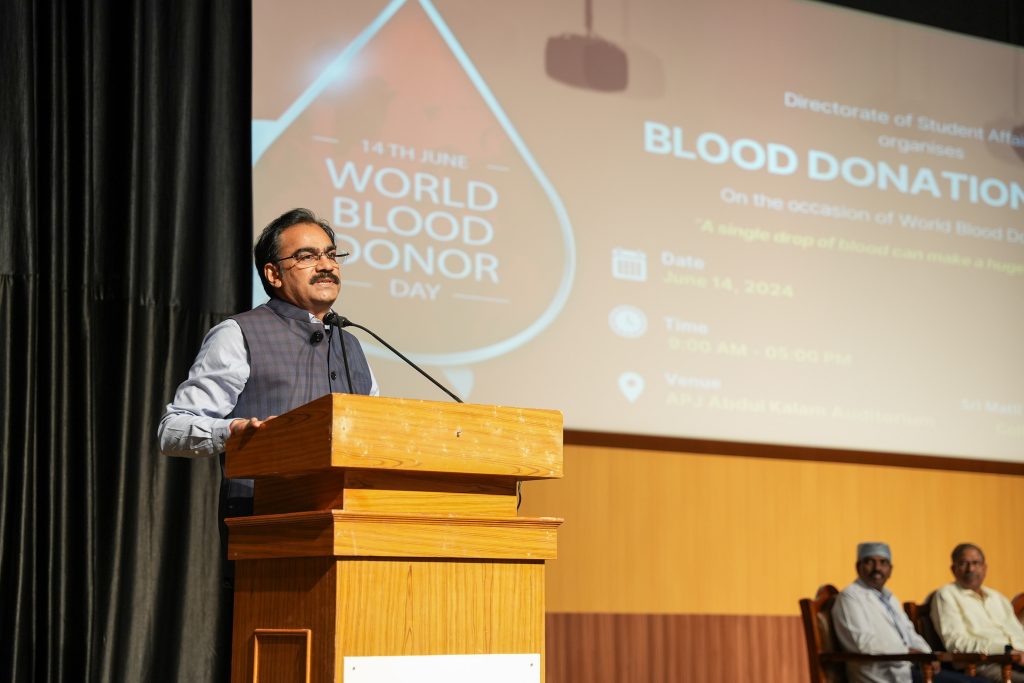
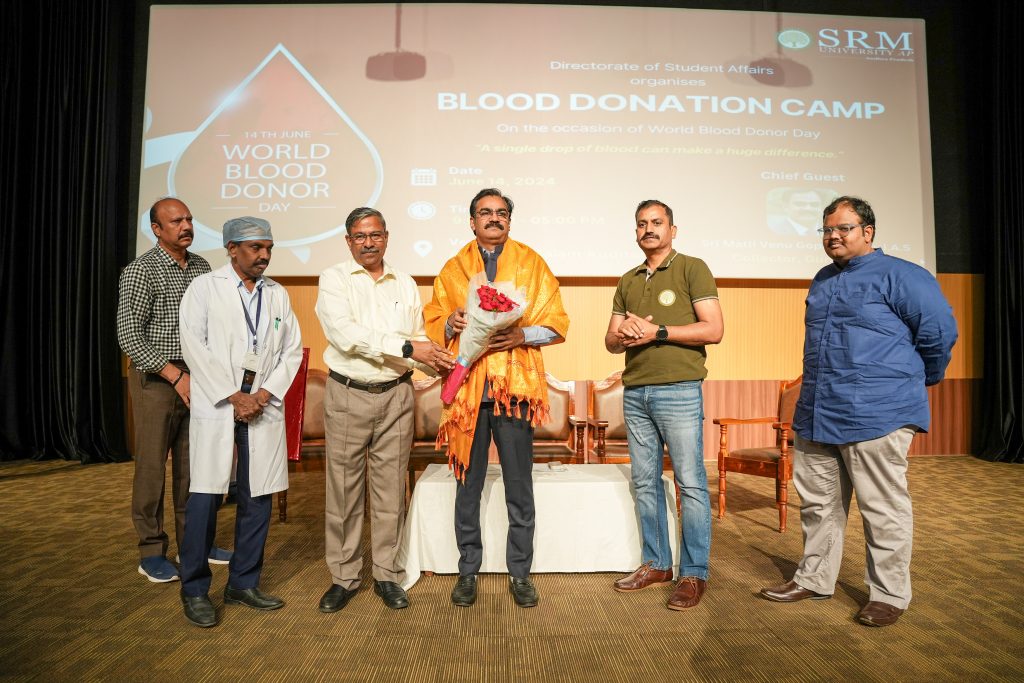
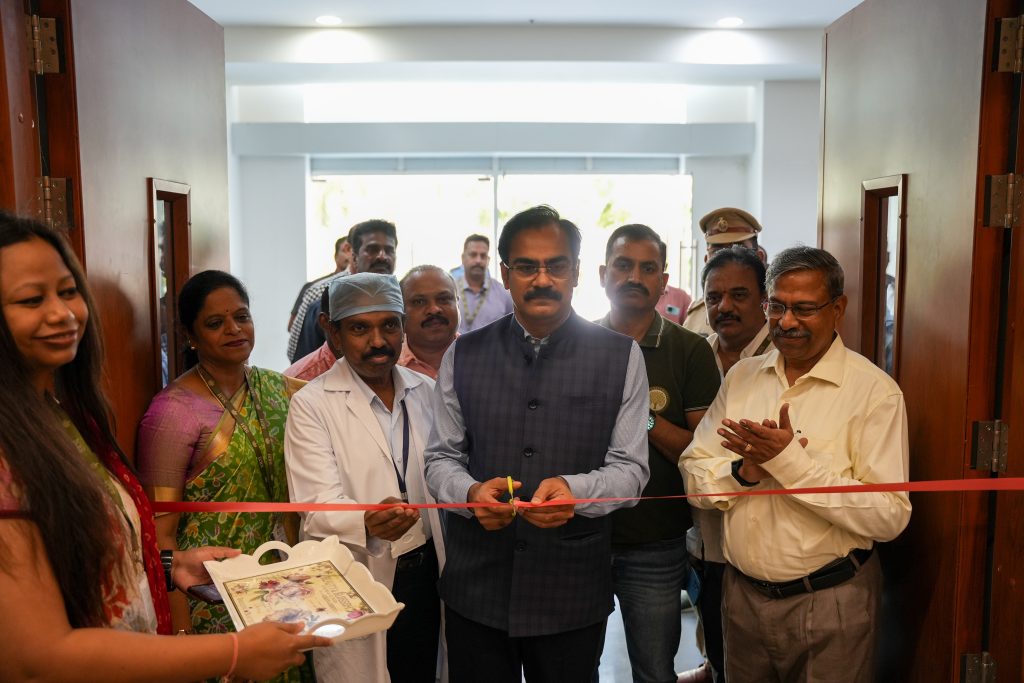
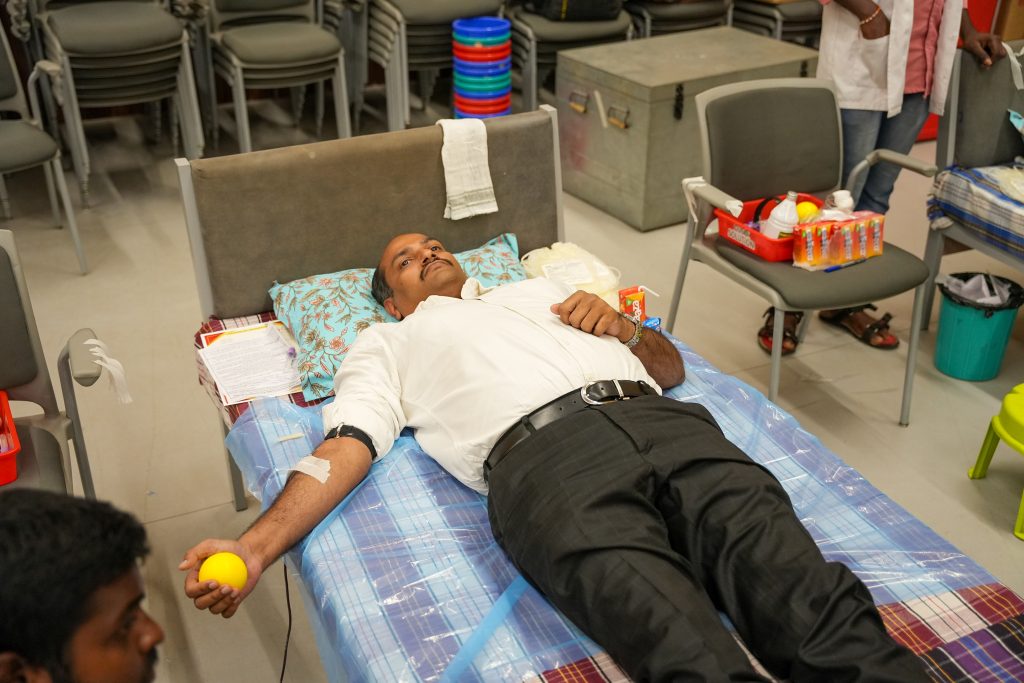
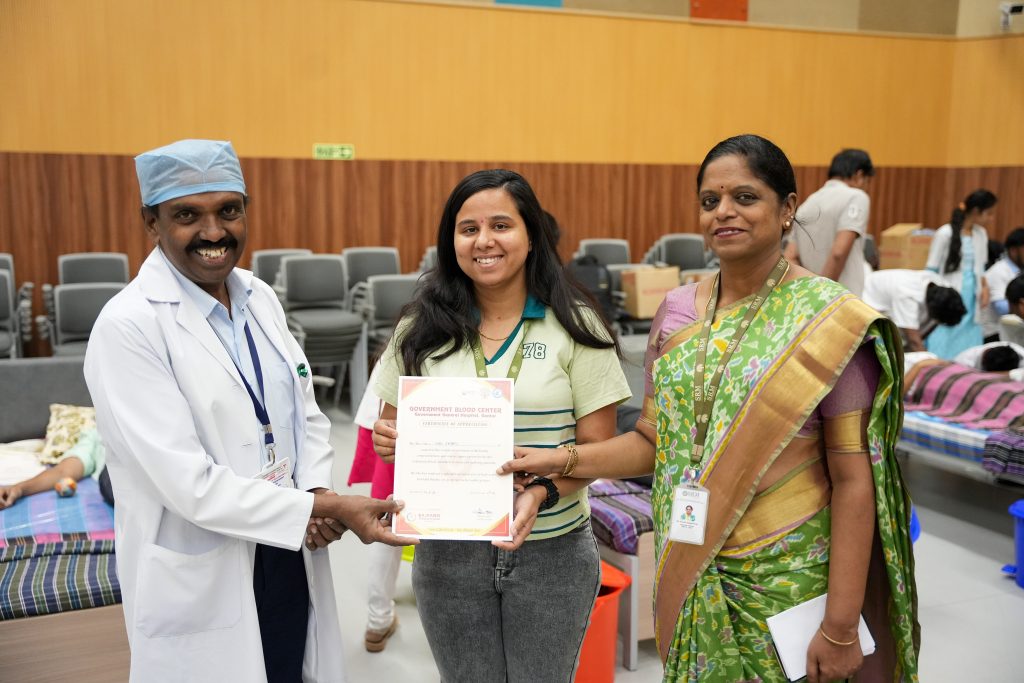
- Published in Departmental News, News, student affairs news, Students Affairs Events, University Event



